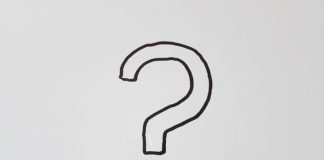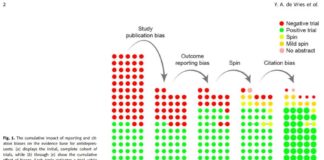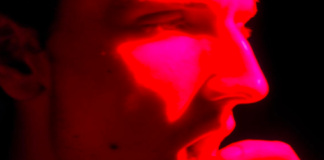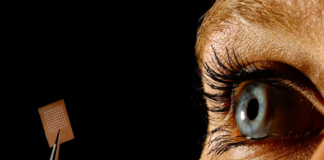Tag: bias
Does Longer Duration of Untreated Psychosis Cause Worse Outcomes?
New research counters the long-held assumption that a longer duration of untreated psychosis is associated with worse outcomes.
How Dissenting Voices are Silenced in Medicine
Researcher criticizes the many ways opposing viewpoints and dissenting voices are squashed in the field of medicine.
Clinical Guidelines for Depression Need Urgent Revision
A coalition of 35 health organizations expressed serious concerns that the NICE guideline for adult depression may cause clinical harm—they demand “full and proper” revisions.
Substantial Spin Found in Leading Psychology and Psychiatry Journals
: A new review finds evidence of spin and the misrepresentation of clinical trials with non-significant results.
Publication Bias Inflates Perceived Efficacy of Depression Treatments, Study Finds
Researchers report the cumulative effects of major biases on the apparent efficacy of antidepressant and psychotherapy treatments.
New Study Challenges Impartiality of Peer Review
New research shows that more connected and well-known researchers are more likely to be published, even when they receive negative reviews.
Racism is Wreaking Havoc on Our Mental Health
In this interview for HuffPost Canada, Uppala Chandraesekera, the director of public policy at the Canadian Mental Health Association Toronto and the first mental health expert...
The Important Drugs Debate Question That Nobody’s Asking
In this piece for Vice, Max Daly explores the impact of societal attitudes toward drug use and drug users on the drug policy debate over prohibition...
Outcome Reporting Bias in Antipsychotic Medication Trials
A new study in the journal Translational Psychiatry, an influential journal in biological psychiatry published by Nature, challenges the state of the research on antipsychotic drugs.
How Norms Change
From The New Yorker: The extent to which we act on our biases is largely dependent upon the social norms within our surrounding environments, which...
Brain Imaging Results Biased by Lack of Representative Data
What does "normal" brain development throughout childhood look like? It may depend on your demographics.
With Great Health Data Comes Great Potential for Bias
From Pacific Standard: Technology is increasingly collecting and sharing data on individuals' mental and physical health, which is then converted into useable knowledge, such as recommendations about...
Researchers Find Inadequate Reporting of the Dangers of Ketamine Treatment for...
Researchers report that dangerous side effects are not being adequately reported in the trials of ketamine for depression.
Research Suggests that Forensic Psychological Examinations are Unreliable and Biased
Concerns have been raised about inconsistent and unreliable results, which may lead to injustices in sentencing or even wrongful convictions.
Psychological Research Fails to Capture Human Diversity, Researchers Call for Action
Data demonstrate an overreliance of non-representative and non-diverse sampling biases in psychological research.
Two Thirds of Patients See Physicians Who Receive Payments From Pharma
Study finds more patients are visiting physicians who have ties to industry than previously thought.
Medical Students’ Racial Biases Lead to Failure to Adequately Treat Patients
False beliefs about biological differences between races are associated with a failure to provide recommended pain treatments to Black people.
Trials Comparing Treatments for Depression Favor Pharmacotherapy when Statisticians Involved
A meta-analysis looks at the effects of researcher background on study findings for trials comparing pharmacotherapy and psychotherapy for depression.
Brain Scans Cannot Differentiate Between Mental Health Conditions
A new study analyzing over 21,000 participants found that differences in activation of brain regions in different psychological “disorders” may have been overestimated, and confirms that there is still no brain scan capable of diagnosing a mental health concern.
Neurosexism: Study Questions Validity of Gender-based Neuroscientific Results
Neuroscientific results that class humans into two categories, “male” and “female,” tend to reify gender stereotypes by giving them the appearance of objective scientific truth.
Who Will Guard the Guardians of Psychiatry?
The assertion that the so-called antidepressants are being over-prescribed implies that there is a correct and appropriate level of prescribing and that depression is a chronic illness (just like diabetes). It has been an integral part of psychiatry's message that although depression might have been triggered by an external event, it is essentially an illness residing within the person's neurochemistry. The issue is not whether people should or shouldn't take pills. The issue is psychiatry pushing these dangerous serotonin-disruptive chemicals on people, under the pretense that they have an illness.
The Psychiatry Sandcastle Continues to Crumble
Psychiatry would long since have gone the way of phrenology and mesmerism but for the financial support it receives from the pharmaceutical industry. But the truth has a way of trickling out. Here are five recent stories that buck the psychiatry-friendly stance that has characterized the mainstream media for at least the past 50 years.
Genetic Tests Marketed to Psychiatrists Not Supported by Research
With the explosion of genetic testing and the emerging field of pharmacogenetics, patients can now take a DNA test and receive psychiatric drug recommendations customized to fit their genetic makeup. In an editorial for the latest issue of the Journal of Nervous and Mental Disease, Columbia University Psychiatrist Robert Klitzman warns that clinicians need to be aware of the limitations of these genetic tests being marketed to them.




























